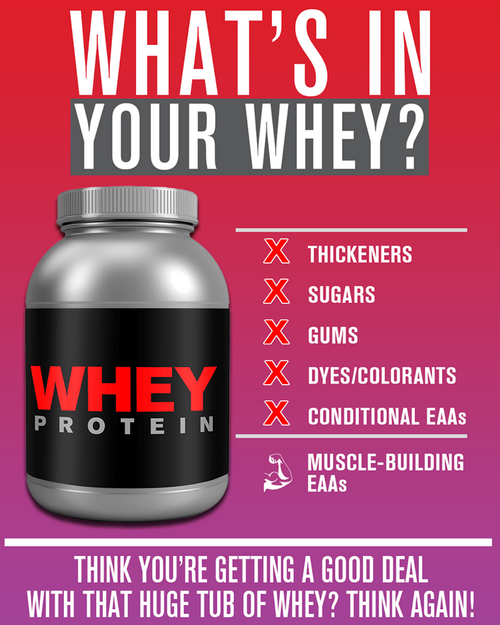What is Really In Your Protein Powder
Scientific studies on whey protein powder point to a consensus that it is moderately effective in stimulating muscle recovery and growth. However, numerous sources like Consumer Reports,clean Label Project and other third-party testing facilities have revealed that most whey protein powders on the market contain 50% or more fillers like artificial sweeteners, sugar, salt, fats, flour, creamer, and many have been found to contain heavy metals and harmful chemicals like arsenic, mercury, and lead. Yikes!
Although many whey protein powders claim to be low calorie, we have a feeling many people would still prefer not to consume the 120 calories that are in most servings of whey protein powders. Many people also experience that uncomfortable bloated feeling and various allergic reactions from drinking whey protein powder.


